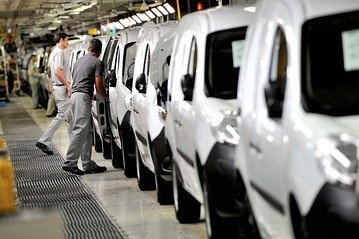Europe’s Big Car Makers Face Hazardous Road

As they frantically restructure to cut costs and try to return to profitability, the measures these car makers have already taken may not be enough, raising the likelihood that they will have to sell assets or raise capital—in some cases for a second time around—according to bankers and analysts.
One problem is the time it takes for a restructuring to produce results. France’s Peugeot and Germany’s Opel are slashing thousands of jobs, and both car makers are looking to share the cost of developing cars through a recently announced alliance.
Fiat SpA is refitting its plants to export cars outside Europe where markets are more buoyant. While the Italian auto maker said in early December it was cutting a quarter of the workforce at the Tychy complex in Poland, it is under slightly less pressure than its peers because of its dominant position in Brazil and exposure to the U.S. through its partner Chrysler Group LLC. The same goes for France’s Renault SA thanks to its alliance with Nissan Motor Co. of Japan.
Time isn’t a luxury for Europe’s mass-market auto makers, which are burning billions of euros of cash every year due to overcapacity at their plants.
“Restructuring is obviously needed across Europe, but it’s costly, takes time, and doesn’t solve the immediate cash burn issue,” said Jean-Baptiste Charlet, a managing director at Morgan Stanley.
The prospect of negative cash flow keeping their finances weak for the coming years is a major headache for the car makers because it makes them vulnerable to the vagaries of the market, according to Emmanuel Bulle, a debt analyst at Fitch Ratings. “It’s all about the number of cars sold in Europe,” he said.
That number is seen as contracting more severely than anticipated this year in light of the crisis in Europe, and it isn’t expected to recover any time before 2014. Ratings agency Moody’s Investors Service expects light vehicle sales to shrink 8% in 2012 and by a further 3% in 2013.
The drop in sales is made starker by numbers from the European Automobile Manufacturers Association, or ACEA, a Brussels-based lobby group for the industry, which show new passenger-car registrations sold in western Europe between 2007 and 2011 falling by two million units to under 13 million.
This has accentuated already tough conditions for mass-market auto makers, because their sales are mostly made in the small-car segment, where competition is fierce and profit margins are negligible at best.
Nouvelles connexes


